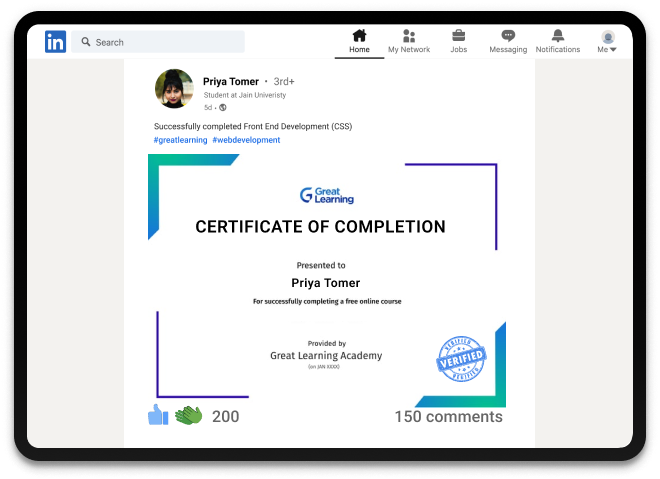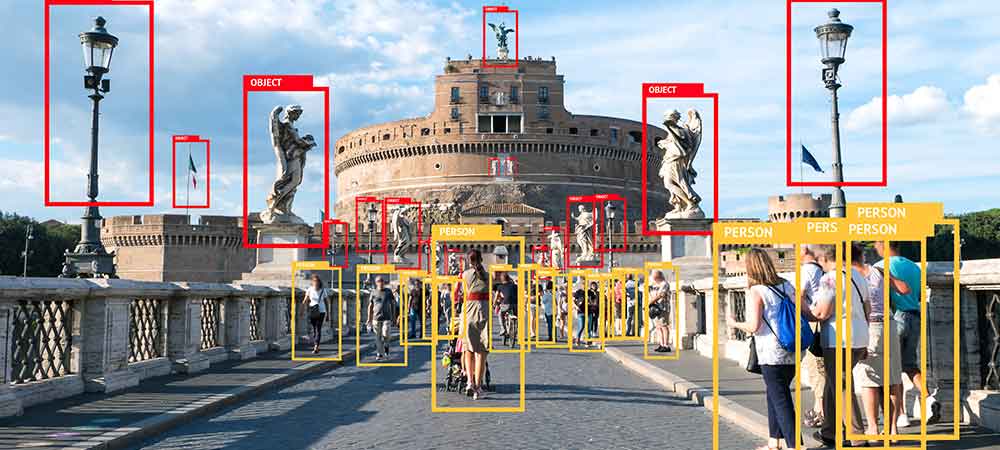VUCA Leadership
Enroll for our free VUCA Leadership course now and gain the skills to lead confidently in a volatile, uncertain, complex, and ambiguous world. Thrive in any situation with our expert guidance.
What you learn in VUCA Leadership ?
About this Free Certificate Course
This course introduces learners to the VUCA world, which stands for volatility, uncertainty, complexity, and ambiguity. The curriculum covers key topics like People, Vision, Flexibility, Feedback, Possibility, Clues, Experimentation, Balance, Perfection, and Connecting the Dots through the Three Ps. Through real-world case studies and demonstrations, learners will develop skills like agility, adaptability, creativity, and innovation, as well as the ability to make informed decisions in the face of uncertainty and complexity.
Expert instructors guide learners through a range of concepts and practical applications, including building strong relationships with stakeholders, understanding organizational context, and fostering a culture of innovation and experimentation. Learners will also learn how to balance the need for perfection with the need for progress and develop a diverse and inclusive workforce.
Great Learning offers multiple Online Marketing & Management Courses that prepare you for leadership in the business.
Course Outline
With this course, you get
Free lifetime access
Learn anytime, anywhere
Completion Certificate
Stand out to your professional network
1.0 Hours
of self-paced video lectures
Frequently Asked Questions
What is VUCA Leadership?
VUCA is abbreviated as volatility, uncertainty, complexity, and ambiguity. A VUCA leader describes a situation of constant, unpredictable changes that is a norm in today’s business world. A VUCA leader, through various principles, avoids traditional, outdated techniques to manage and master day-to-day work in the business environment.
Why is leadership important in the VUCA world?
A good leader in the VUCA world will help employees understand the norm change and position them to embrace and adapt to it. A leader also helps the employees thrive in an ever-evolving work environment by supporting and communicating clear instructions to change and guide the organization to succeed in the times of VUCA.
How do I overcome the world VUCA?
You can follow these simple principles to overcome VUCA.
-
Counter volatility with vision. Develop a compelling vision and values for your employees.
-
Deal uncertainty with understanding. Understand what your competitors are doing under similar circumstances.
-
Solve the complexity with clarity
-
Deal ambiguity with agility
How do you become a leader in the VUCA world?
To be a competent leader in the VUCA world, one has to:
-
Develop a shared purpose. Be a good team player where you share a purpose and where vision is key
-
Learning agility
-
Self-awareness
-
Lead through collaborations and influence
-
Be confident to lead through uncertainty
Will I get a certificate after completing this VUCA Leadership free course?
Yes, you will get a certificate of completion for VUCA Leadership after completing all the modules and cracking the assessment. The assessment tests your knowledge of the subject and badges your skills.
Success stories
Can Great Learning Academy courses help your career? Our learners tell us how.And thousands more such success stories..
Related Management Courses
Popular Upskilling Programs
Explore new and trending free online courses
Relevant Career Paths >
VUCA
VUCA is an acronym that stands for volatility, uncertainty, complexity, and ambiguity. It is a term that was originally coined by the United States military in the late 1980s to describe the rapidly changing and unpredictable nature of the world after the end of the Cold War. Today, it has become a widely used concept in various fields, from business and leadership to education and international relations.
Volatility refers to the unpredictable and unstable nature of the world. Events can happen quickly and unexpectedly, and their impact can be significant. For example, the sudden collapse of a company or the outbreak of a pandemic can have far-reaching consequences that were difficult to anticipate.
Uncertainty is the lack of predictability and clarity about the future. There are many unknowns and variables that can impact a situation, making it difficult to make informed decisions. For example, changes in the political or economic climate can create uncertainty for businesses, making it challenging to plan for the future.
Complexity refers to the interconnectedness and interdependence of systems and factors that influence a situation. There are often multiple factors at play that can impact a situation, making it difficult to understand and manage. For example, addressing complex social issues like poverty or inequality requires a holistic and multi-faceted approach.
Ambiguity is the lack of clarity and understanding about a situation. There may be conflicting information or interpretations that make it challenging to make sense of a situation. For example, in the aftermath of a natural disaster, it can be difficult to determine the extent of the damage or the needs of the affected population.
In today's rapidly changing world, leaders need to be able to navigate the challenges posed by VUCA. They need to be agile, adaptable, and able to make quick and informed decisions in the face of uncertainty and complexity. They also need to be able to communicate effectively and inspire confidence in their teams.
One way to develop the skills needed to navigate VUCA is through VUCA leadership training. This type of training focuses on developing the skills and mindset needed to lead effectively in a complex and unpredictable world. It emphasizes the importance of flexibility, creativity, and innovation, as well as the need to be comfortable with ambiguity and uncertainty.
VUCA leadership training also focuses on developing skills in areas like strategic thinking, collaboration, and communication. It emphasizes the importance of building strong relationships with stakeholders and developing a deep understanding of the context in which an organization operates.
In addition to leadership training, there are several other strategies that can help organizations navigate VUCA. One is to foster a culture of innovation and experimentation. This can help organizations to stay ahead of the curve and adapt to changing circumstances more effectively.
Another strategy is to build a diverse and inclusive workforce. This can help organizations to tap into a wide range of perspectives and insights, which can be particularly valuable in navigating complex and uncertain situations.
Overall, VUCA is a concept that captures the unpredictable and rapidly changing nature of the world we live in. Leaders who are able to navigate the challenges posed by VUCA will be better positioned to succeed in today's dynamic and competitive environment. By developing the skills and mindset needed to thrive in a VUCA world, individuals and organizations can create a more resilient and sustainable future.











































.jpg)








